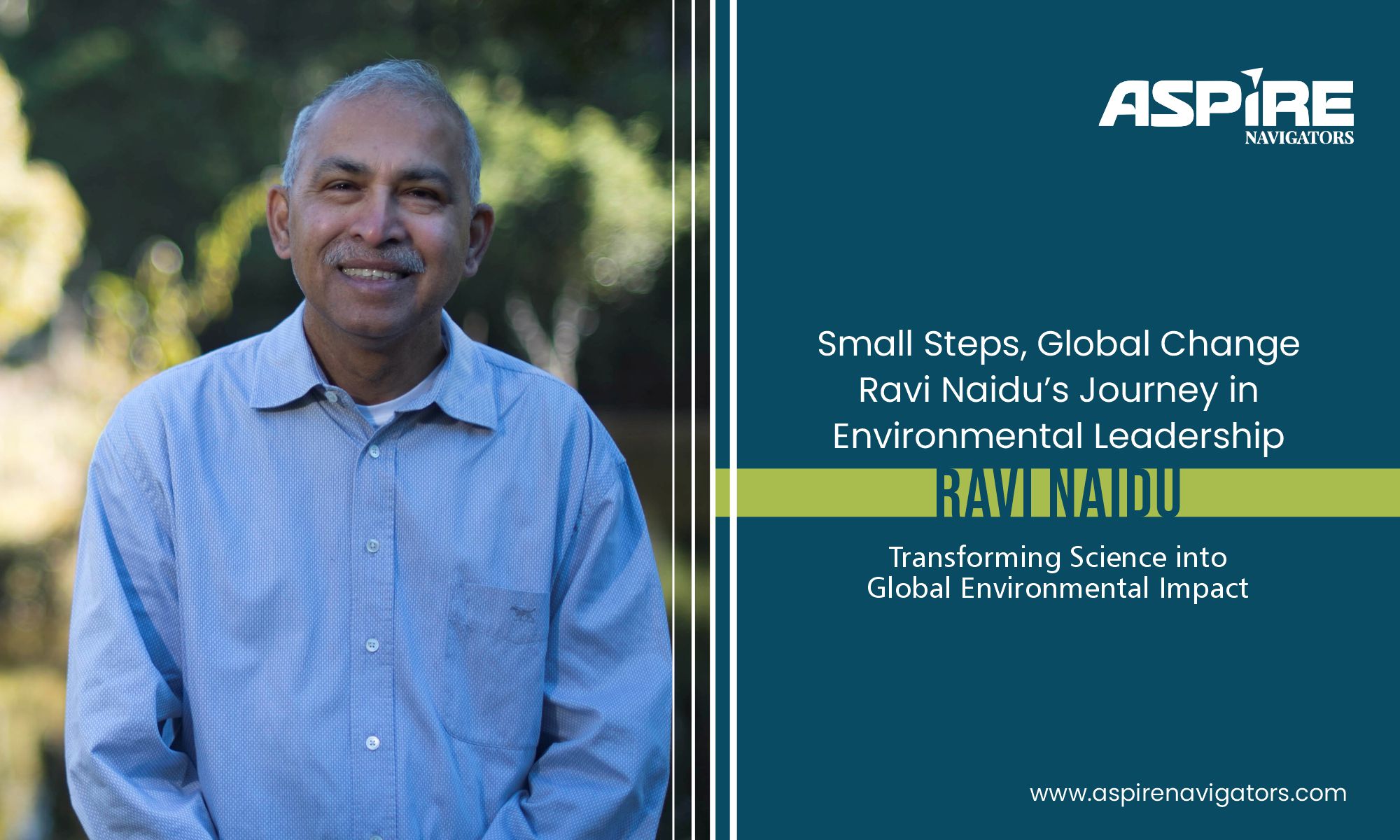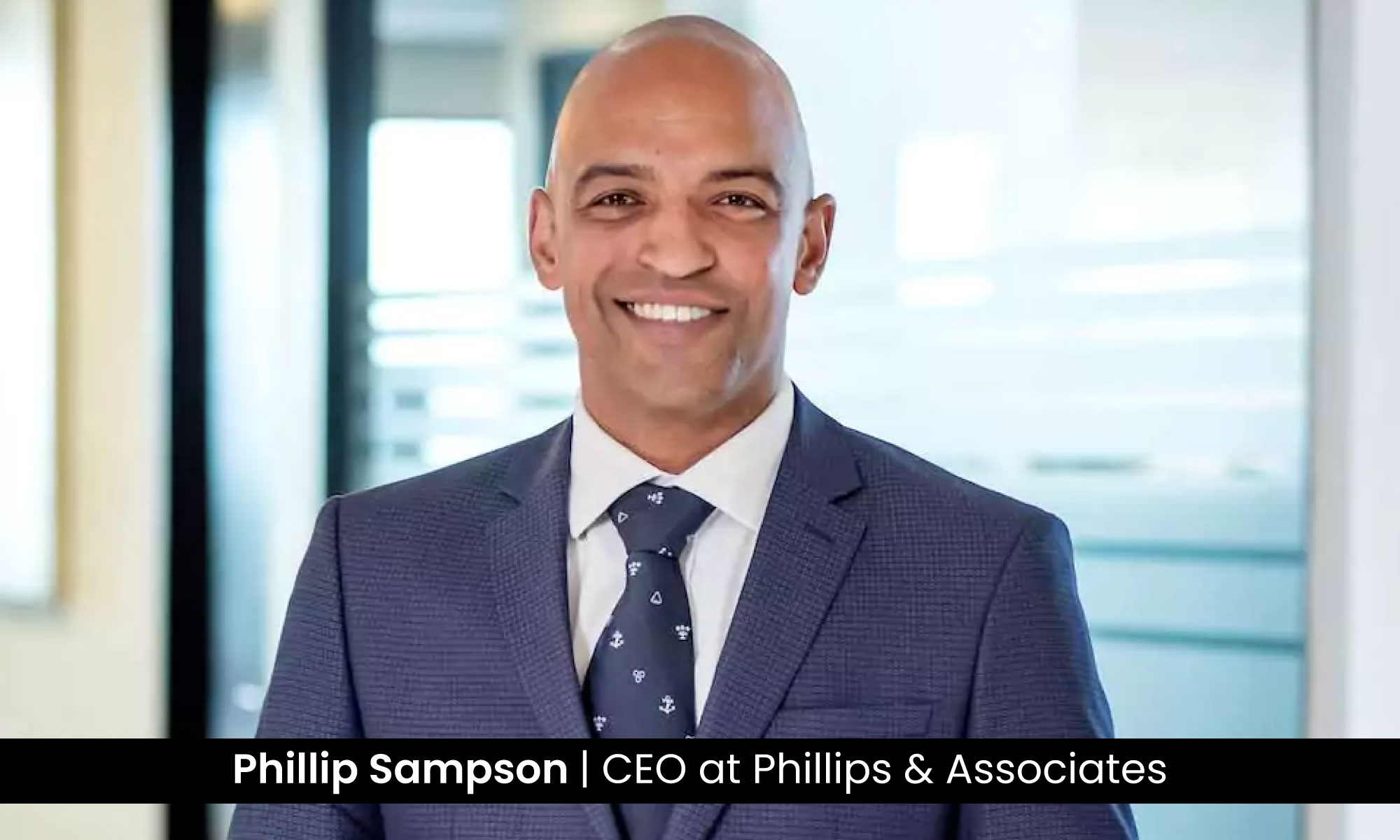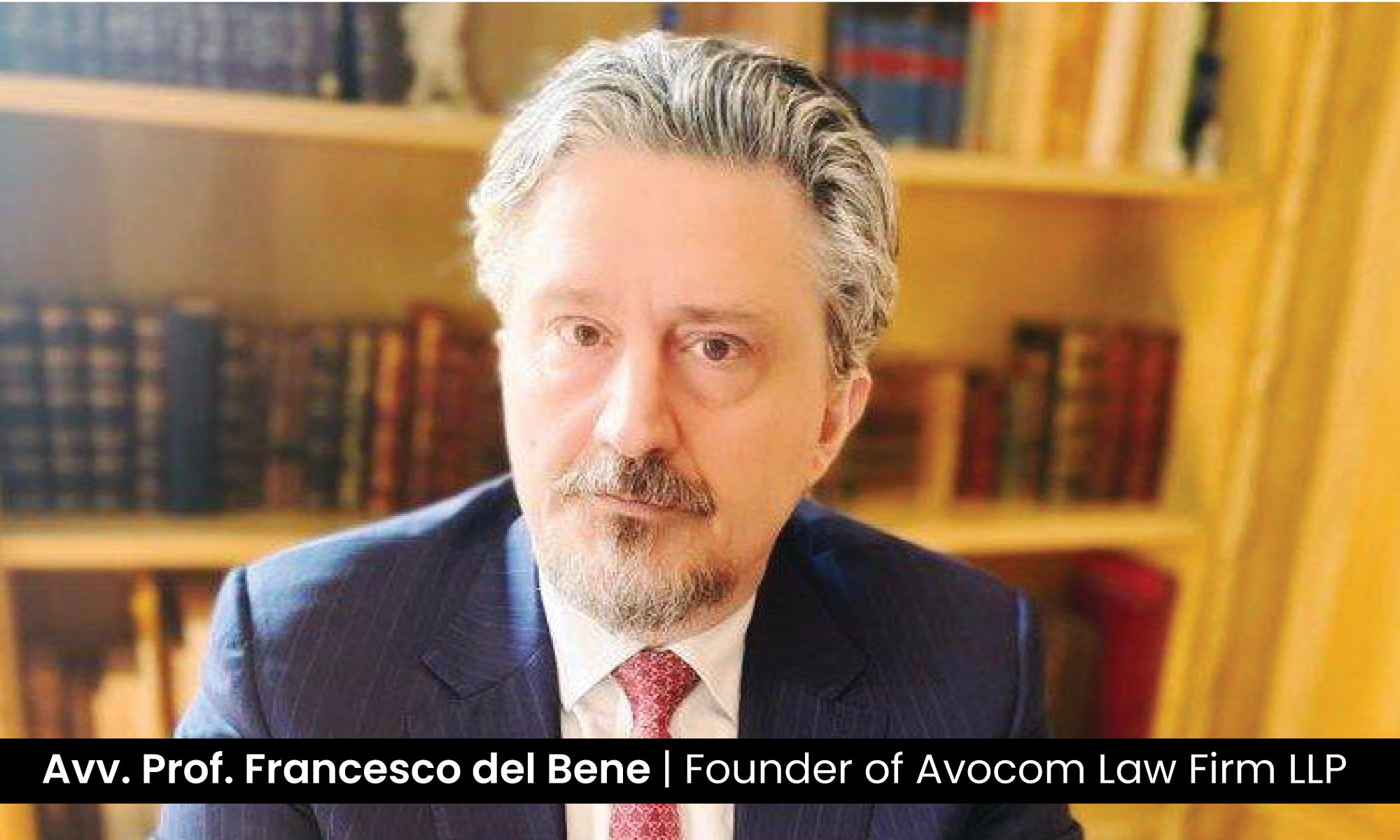Sometimes the most profound transformations begin not with sweeping changes, but with the smallest of steps—an insight shared, a young professional trained, or a conversation that sparks possibility. For distinguished Laureate Professor Ravi Naidu, this belief has guided his journey from a young researcher to a global leader in environmental science and sustainability.
It was this conviction that led him to raise modest funds, bit by bit, to bring delegates from across the Asia-Pacific to Australia for the very first CleanUp Conference in 1996. What might have seemed like a small effort—supporting a handful of participants—became the foundation for a global movement in environmental remediation and skills development.
For Ravi, the lesson enduring science alone is not enough. True impact lies in pairing knowledge with communication, collaboration, and trust. Today, as Managing Director and CEO of crcCARE, and as the Director of the Global Centre for Environmental Remediation, University of Newcastle Australia, he continues to nurture this philosophy, building not just research outcomes, but generations of professionals equipped to lead complex, multi-sector solutions to contamination and environmental challenges. His story is proof that the small things, done with purpose, can create ripples that reshape the world.
From Research to Real-World Impact
Ravi’s inspiration stems from witnessing the profound impacts of environmental contamination on human health, ecosystems, and livelihoods, particularly in developing regions. Early in his career, he recognised that the issue was not only scientific but also systemic: many countries lacked the capacity, infrastructure, and trained personnel needed to effectively monitor and mitigate contamination. This realization motivated him to dedicate his career not only to advancing research but also to strengthening the capabilities of governments, industries, and institutions worldwide.
Unlike private consulting companies, which often operate on short-term, profit-driven contracts, Ravi understood that lasting progress in developing countries could not be achieved through consultancy alone. With nearly ten million potentially contaminated sites globally, he saw that financial limitations would prevent many nations from outsourcing their environmental challenges indefinitely. The only sustainable solution was to build local expertise: every scientist, regulator, or practitioner trained would not only contribute to immediate clean-up but also prevent future contamination.
He has long believed that sustainable solutions require more than technology; they demand knowledge sharing, strong partnerships, and empowerment. By building global networks, training programs, and accredited laboratories—including those he helped establish in Coimbatore, India, and Dhaka, Bangladesh—his mission has been to enable countries to manage their own environmental risks, safeguard food safety, and protect public health. For him, environmental stewardship should never be a privilege reserved for wealthy nations; it must be a universal right advanced through shared science and collaborative innovation.
At crcCARE, innovation under his leadership is never pursued for its own sake; it is guided by the imperative of real-world impact. Research programs are co-designed in close partnership with industry, regulators, and communities, ensuring that every outcome is both scientifically rigorous and practically viable. Laboratory discoveries have been translated into field-ready technologies for contaminant detection, in situ remediation, and sustainable groundwater treatment. Equally important, each advance is accompanied by training programs, guidelines, and accreditation processes enabling adoption globally, including in emerging economies.
By embedding skills development into every initiative, distinguished Laureate Professor Ravi Naidu has ensured that crcCARE’s work empowers nations to manage contamination risks independently through local expertise, accredited facilities, and climate-resilient infrastructure. This fusion of technology transfer and capacity building has positioned crcCARE as a catalyst for long-term environmental security and global collaboration.
Transforming Research into Resilience
Under Ravi’s leadership, crcCARE has achieved landmark milestones in global capacity building. One of the most significant has been the establishment of world-class analytical and remediation laboratories in collaboration with universities and industry partners. These facilities—including those in Coimbatore, India, and Dhaka, Bangladesh—have enabled countries to meet international environmental and trade standards with greater efficiency and confidence.
In recognition of his global leadership, Professor Naidu was awarded the FAO of the UN–Glinka World Soil Prize in 2018, the world’s highest honour in soil science. This award acknowledged his lifetime achievements in advancing sustainable soil management and environmental remediation, particularly through initiatives that built enduring capacity in nations to address contamination challenges independently.
Recognising that crcCARE alone could not deliver this mission on a scale, Ravi spearheaded collaboration with universities, leading to the creation of the Global Centre for Environmental Remediation (GCER) at the University of Newcastle. GCER’s academic networks, combined with crcCARE’s applied research excellence, created a powerful platform for training, knowledge exchange, and technology transfer. He consistently credits these achievements to the strength of his teams and collaborators, underscoring that building capacity is always a collective effort.
Equally transformative has been crcCARE’s training programs. Thousands of scientists, regulators, and industry professionals, including many from developing Asia-Pacific nations, have been trained in best practices for contamination assessment, remediation, and risk management. These initiatives span hands-on training for consultants, accreditation programs, advanced contaminant testing, and sustainable remediation techniques, ensuring that knowledge is not only shared but embedded in practice.
Through its global partnerships, crcCARE jointly with GCER has become a leader in translating science into capacity and policy impact. Professor Naidu also draws attention to the defining environmental challenges of our time: the persistence of PFAS and other “emerging chemicals,” the spread of plastics and microplastics, heavy metal contamination, and the intensifying risks linked to climate change. These threats jeopardize ecosystems, food security, and human health, particularly in vulnerable regions.
He emphasises that addressing these challenges requires more than advanced technologies. It demands local capacity. Many nations still lack accredited laboratories, trained personnel, and regulatory systems necessary to monitor and respond to emerging contaminants. Without these foundations, global solutions remain out of reach.
By building local testing facilities, training scientists and regulators, and developing harmonised guidelines, crcCARE under Naidu’s stewardship empowers nations to manage contamination risks independently and sustainably. This integrated approach strengthens resilience, allowing countries to detect threats early, comply with international standards, and implement remediation strategies tailored to their unique environmental and economic contexts.
Empowering People to Deliver Sustainable Environmental Solutions
Ravi views capacity building not as a one-off initiative, but as a long-term investment in the next generation of environmental leaders. Under his guidance, crcCARE jointly with GCER prepares future researchers and practitioners through three core pillars: world-class training, practical experience, and international collaboration.
Through postgraduate programs in partnership with leading universities, students engage in industry-driven projects that address real environmental challenges. PhD candidates and postdoctoral fellows gain hands-on experience in advanced laboratory techniques, field remediation, and modern risk assessment tools, ensuring their skills are immediately applicable.
Naidu also stresses the importance of leadership and communication, ensuring graduates can influence policy and shape systemic change. International placements and connections with organisations such as the FAO and partner universities expose early-career researchers to global sustainability issues, preparing them to lead multi-sector solutions to complex contamination and environmental issues.
He is motivated by the lasting impact this work delivers for communities, ecosystems, and future generations. Progress, he often notes, is incremental—built through each trained professional, new insight, and successful project that together lay the foundation for broader transformation. What energises him most is seeing the growth of his teams, students, and collaborators, and the ripple effects of their work. For Naidu, perseverance is essential: every step forward, however small, contributes to global change.
To extend this mission, he launched globalCARE and PlanetCARE, initiatives dedicated to strengthening environmental training and capability development across developing nations. While these programs are already gaining momentum, their long-term success depends on philanthropic support to complement competitive research grants. With additional resources, crcCARE and GCER can scale their impact, equipping countries not only to remediate legacy contamination but also to prevent new environmental crises.
Building Capacity, Not Just Technology
Ravi’s advice to industry leaders is clear: sustainability should not be treated as a side initiative, but as a core strategic driver. Embedding environmental, social, and governance considerations into every layer of decision-making and operations, he argues, is essential for long-term success. Equally critical is investment in capacity—the skills, knowledge, and networks that enable organisations and sectors to adapt and innovate. By equipping teams to collaborate and respond to emerging challenges, Naidu demonstrates how sustainability can become a source of resilience, growth, and competitive advantage, rather than a compliance burden.
Looking ahead, he hopes crcCARE’s legacy will be defined not only by research breakthroughs and remediation technologies but also by the people and knowledge it has empowered. For Naidu, the organisation’s lasting impact lies in the global capacity it has built, training the next generation of scientists, practitioners, and leaders who can address complex chemical and environmental challenges wherever they arise. He envisions crcCARE being remembered not just for the science it delivered, but for the networks, partnerships, and practical skills it fostered—creating pathways for knowledge to flow across borders and sectors long after individual projects are complete.
Shaping the Next Decade of Remediation
Ravi ensures that scientific rigor is always tied to real-world outcomes by embedding application into research design from the outset. Under his leadership, crcCARE projects are structured to generate robust evidence while also delivering practical tools, guidelines, and training programs that governments, industries, and communities can readily adopt. By engaging stakeholders throughout the process, Naidu ensures that solutions are not only technically sound, but also scalable, locally relevant, and sector-ready. This model transforms research excellence into tangible capacity and lasting impact.
Looking ahead, he highlights several trends that will shape the future of remediation: the persistence of contaminants such as PFAS, microplastics and emerging contaminants, intensifying regulatory expectations, the growing demand for sustainable and in situ remediation technologies, and the rapid integration of digital tools including sensors, AI, and real-time monitoring. To meet these challenges, crcCARE is strengthening global capacity by training scientists and practitioners in advanced techniques, fostering cross-sector collaboration, and developing tools and frameworks that help governments and industries respond with speed and confidence. By anticipating risks and translating science into practice, Naidu positions crcCARE and GCER to drive preparedness, resilience, and innovation in an increasingly complex environmental landscape.
Science, Teamwork, and Philanthropy for a Cleaner Future
Scaling these efforts requires more than research excellence and partnerships—it also calls for philanthropic support. crcCARE is seeking partners who share their commitment to building a cleaner, safer future. With additional resources, they can expand training, establish more accredited laboratories, and equip developing nations to both remediate legacy contamination and prevent new threats from emerging.
Philanthropic investment will not just fund science—it will accelerate the transfer of knowledge, the training of local experts, and the establishment of infrastructure that ensures nations can sustain progress long after projects conclude. Most importantly, such support will build on and amplify what Professor Naidu has already delivered over decades of leadership—ensuring cleaner environments, safer food systems, and healthier communities worldwide. By combining science, teamwork, and philanthropy, this mission ensures that knowledge and capacity extend well beyond individual projects, creating lasting global impact.
Those interested in contributing to this vision are warmly invited to contact admin@crccare.com



